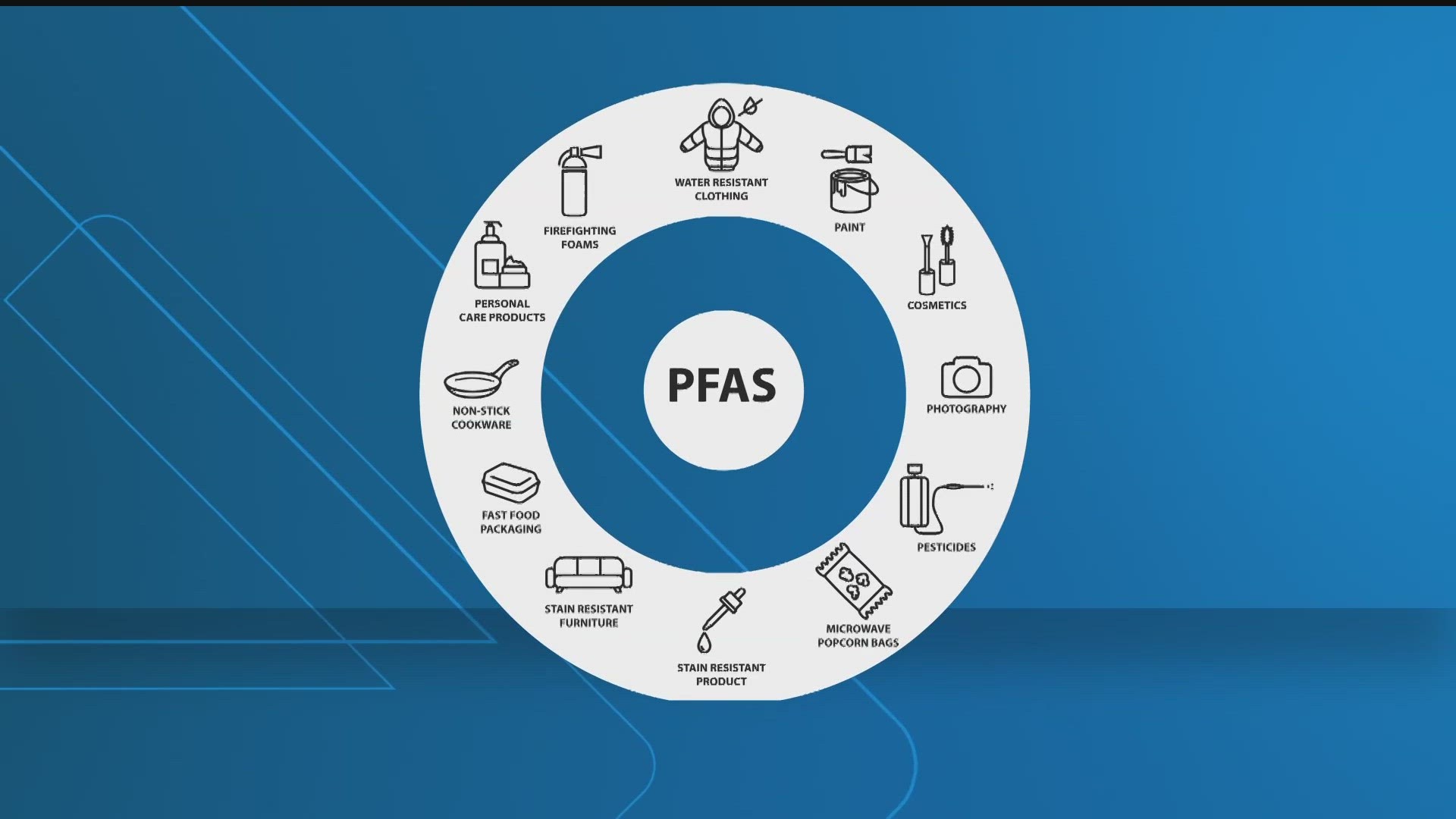ST PAUL, Minn. — Minnesota lawmakers are one step closer to phasing out sales of products made with PFAS, a class of compounds better known as "forever chemicals" because of their persistence in the environment.
A House-Senate conference committee agreed on language that will begin the ban of fire suppression foam containing PFAS in 2025, along with other products laden with those chemicals.
"This piece of legislation, when it passes and it’s signed by the governor, will be a big new day for Minnesota. It will be a legacy for clean water in Minnesota, but also for public health and public safety," Rep. Jeff Brand of St. Peter told reporters.
If the committee's final version becomes law, the ban on PFAS products will include carpet and rugs, cleaning products, cookware, cosmetics, dental floss, fabric treatment, juvenile products, menstruation products, textile furnishings, ski wax, upholstery and upholstered furniture.
Brand said lobbyists from affected industries have been pressing legislators in the corridors of the State Capitol, even saying that a lot of products simply won't be sold in Minnesota if the proposed bans are implemented.
"They've told me these products simply won’t be sold in Minnesota. I will tell you that they will be sold in Minnesota because they’ll be missing out on a large market, and they’ll figure it out. Right? Give them the problem and people will figure out the solution."
The Minnesota Pollution Control Agency will be tasked with deciding which products with PFAS are considered essential versus nonessential. The language would give airports and oil refineries extra time to transition away from PFAS foam, due to supply chain considerations.
"PFOS has been contained in firefighting foam a long time," Rep. Matt Norris, a Blaine Democrat, explained.
"We’re going to do it in a responsible manner in a way that protects public safety while setting us on a course to make sure we’re eliminate these cancer-causing chemicals from firefighting foam."
The legislation will be called "Amara's Law" in honor of Amara Strande of Maplewood, who died April 14 at the age of 20 after a long battle with a rare form of liver cancer. Amara spent the last months of her life making trips to the Capitol to testify in support of a PFAS ban, because she was convinced her disease was due to cell mutations triggered by PFAS in drinking water.
"Amara was willing to do whatever it takes to prevent other young people from having to face a disease like her own," Michael Strande, Amara's father, told reporters.
The health impacts of PFAS exposure are still being studied around the world. According to a Minnesota Department of Health summary, prolonged "forever chemical" exposure has been linked to liver and thyroid ailments, immune response suppression, and development issues in children.
Maplewood-based 3M, which invented the ubiquitous nonstick chemical, has maintained that the levels in drinking water aren't sufficient to trigger adverse health effects. The company and the State of Minnesota reached an $850 million out-of-court settlement after the state sued, seeking the cost of cleanup of ground water contaminated by PFAS chemicals that spread from 3M dump sites.
A study by University of Southern California researchers found that people with higher levels of PFAS in their bodies where more likely than others to develop liver cancer, but cautioned that larger studies are needed to gain a full understanding of the relationship between the chemicals and these ailments.
The Environmental Protection Agency has adopted tougher standards for what's considered an acceptable maximum level of PFAS in municipal water, something that could come at a significant cost for water treatment plants that aren't equipped to filter it to that extent.
The EPA's state counterpart, the Minnesota Dept. of Pollution Control, has established an aggressive multi-pronged plan for tackling PFAS issues. It includes more monitoring of ground water, assisting municipalities with PFAS removal, and new efforts to correlate contamination with adverse health impacts.
"To hear year after year young people come to the Capitol and beg adult lawmakers to take action on this PFAS issue and us do nothing is heartbreaking," Rep. Sydney Jordan, a Minneapolis Democrat remarked.
"But this year we’ve done it. Voices mattered. Amara’s voice mattered and will save lives. This will be the strongest PFAS language in the nation."
Watch more Minnesota politics:
Watch the latest political coverage from the Land of 10,000 Lakes in our YouTube playlist:

